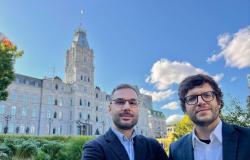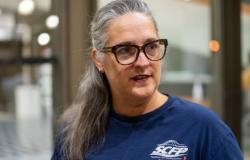Despite an agreement reached last year, the number of Quebecers waiting for a consultation with a specialist doctor continues to increase. There are now nearly 900,000 waiting, an increase of 7% in one year.
In November 2023, the Minister of Health declared that he had concluded an agreement in principle with the Federation of Specialist Doctors of Quebec (FMSQ) “in order to allow better access for patients to consultations with specialist doctors across Quebec” .
Christian Dubé thus put an end to his threat to include the new obligations of specialists directly in his Bill 15. These “special medical activities” (AMP) were instead to be negotiated and gradually implemented until November 30.
The AMPs were to include consultations offered according to government priorities, work in a hospital environment and support in the region.
But since then, work has stalled. According to our information, the two parties still hope to be able to reach an agreement “in the coming months” and the arrival of these obligations would not be linked to the renewal of the framework agreement between Quebec and the FMSQ.
“One thing is certain: we cannot give more money for the same results,” commented the office of the Minister of Health on Tuesday. The FMSQ, for its part, affirms that to date the question of AMPs has been resolved for a dozen specialties, out of 35.
Long lists
In the meantime, far from decreasing, the waiting lists have continued to grow. At the time of the agreement in November 2023, these included more than 823,000 patients.
A year later, there are now 878,742 in the queue, of which 62% are already out of time, according to the Ministry of Health dashboard.
Quebec has set itself the ambitious target of reducing the proportion of late patients to 35% by next March, the same proportion as before the pandemic. A little more than 500,000 people were waiting to see a specialist doctor.
This accumulation of delays worries the liberal health critic. “There are people among these 900,000 who, when they manage to see a specialist, will learn that they have cancer” and who should start treatments now, underlines André Fortin.
He calls the situation a “monumental failure” on the part of the government.
Duplicates
The Dr Akram Rahal, president of the Association of Otolaryngology and Head and Neck Surgery of Quebec, also says he is concerned about the approximately 114,000 consultations waiting to see an ENT, the specialty most in demand.
But the productivity of its members, he assures, already exceeds that of other Canadian provinces.
According to him, even if the needs are real, the waiting lists can contain many duplicates and patients already seen. In neurology, the purification of lists has reduced the number of pending consultations by 30% to 40%, he argues.
His association also relies on “digital advice” to unclog the system. With this approach, a general practitioner can send an ultrasound, for example, to obtain the opinion of a specialist without visiting the patient.
“It helps to meet the demand of the first line, without increasing the number of irrelevant consultations,” says the Dr Rahal.
Patients waiting for a consultation with a specialist
- October 2024: 878,742
- October 2023: 824,454
- October 2022: 824,657
- October 2021: 641,148
- October 2020: 549,429
Source: Dashboard – Performance of the health and social services network
Do you have any information to share with us about this story?
Write to us at or call us directly at 1 800-63SCOOP.






